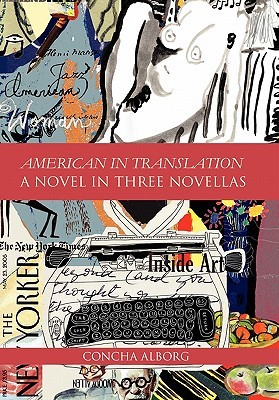
- We will send in 10–14 business days.
- Author: Concha Alborg
- Publisher: Xlibris
- ISBN-10: 1456886193
- ISBN-13: 9781456886196
- Format: 15.2 x 22.9 x 1.9 cm, hardcover
- Language: English
- SAVE -10% with code: EXTRA
Reviews
Description
the Vietnam era to the present. Each novella represents a pivotal time in the life of Inmaculada, a young Spanish woman who has recently immigrated to the United States. American in Translation is Concha Alborg’s first novel written in English.
“Marine Corps Wife” is told from Inma’s point of view during the year when her husband is fighting in Vietnam while she is in a small midwestern college town with their newborn daughter. Much has been written about the Vietnam conflict from the point of view of the soldiers, but little from the female perspective of the wife who, like Inma, is left behind, trying to keep her family together.
“Spanish Daughter,” told in a different voice, begins with the death of Inma’s mother, which reveals tensions and betrayals within her own family. In contrast with the more liberated 1970s of American culture, Spain was suffering from growing pains after decades of a repressive government. Ironically, the personal and the political become one since Franco is dying at the same time, and in the same hospital, as Inma’s mother.
Inma’s true liberation comes in the third novella, “American Woman,” told through her journals while traveling in Europe and the States and in direct conversations with her therapist, who is helping Inma find the strength to divorce her husband. Finally, Inma emerges as a fully realized at the personal level through a sexual and emotional awakening and at the professional level through her work and her writing.
The “Translation” in the title becomes emblematic of her transformation and the complexities of American life.
EXTRA 10 % discount with code: EXTRA
The promotion ends in 20d.18:41:02
The discount code is valid when purchasing from 10 €. Discounts do not stack.
- Author: Concha Alborg
- Publisher: Xlibris
- ISBN-10: 1456886193
- ISBN-13: 9781456886196
- Format: 15.2 x 22.9 x 1.9 cm, hardcover
- Language: English English
the Vietnam era to the present. Each novella represents a pivotal time in the life of Inmaculada, a young Spanish woman who has recently immigrated to the United States. American in Translation is Concha Alborg’s first novel written in English.
“Marine Corps Wife” is told from Inma’s point of view during the year when her husband is fighting in Vietnam while she is in a small midwestern college town with their newborn daughter. Much has been written about the Vietnam conflict from the point of view of the soldiers, but little from the female perspective of the wife who, like Inma, is left behind, trying to keep her family together.
“Spanish Daughter,” told in a different voice, begins with the death of Inma’s mother, which reveals tensions and betrayals within her own family. In contrast with the more liberated 1970s of American culture, Spain was suffering from growing pains after decades of a repressive government. Ironically, the personal and the political become one since Franco is dying at the same time, and in the same hospital, as Inma’s mother.
Inma’s true liberation comes in the third novella, “American Woman,” told through her journals while traveling in Europe and the States and in direct conversations with her therapist, who is helping Inma find the strength to divorce her husband. Finally, Inma emerges as a fully realized at the personal level through a sexual and emotional awakening and at the professional level through her work and her writing.
The “Translation” in the title becomes emblematic of her transformation and the complexities of American life.


Reviews